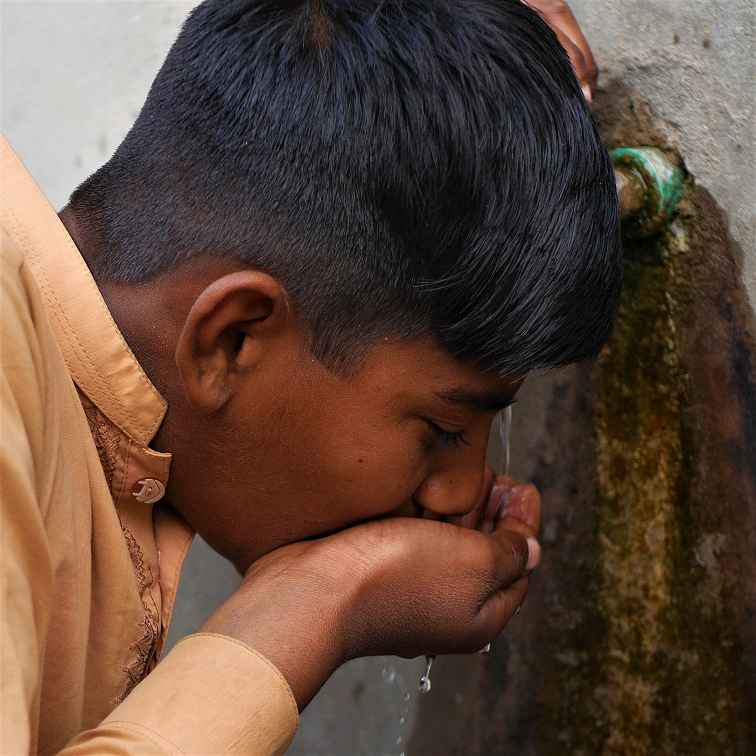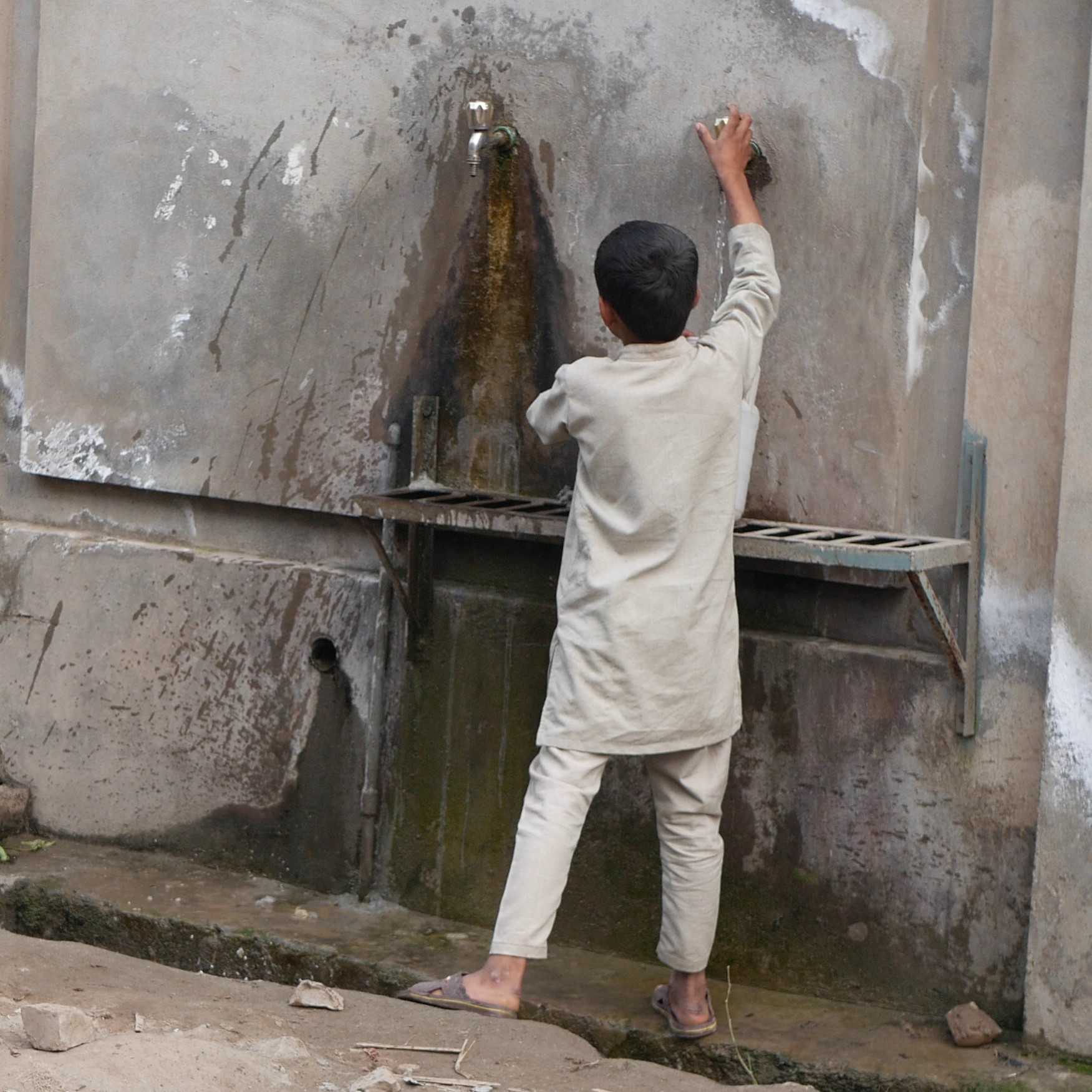In the Ghotki district of Sindh, 17 water filtration plants were installed two years ago for 3.57 million rupees. Thirteen of these plants are now closed. Residents of the areas are now forced to drink contaminated water or travel long distances to fetch clean water.
The RO (Reverse Osmosis) Filtration Plant was built based on the District Development Committee's suggestion in the Ghotki district, including areas like Dharki, Obaro, Mirpur Mathilo, and their villages Yaro Lond, Saeed Khan Chandio, Islam Lashari, Maruwala, Panah Malik, Wahid Bakhsh Mehr, and Wahid Bakhsh Joyo. The plants were opened in July 2021.
The private company Madi Petroleum financed the filtration plant project, and the Department of Public Health was responsible for their installation. Unfortunately, no funds were allocated for their maintenance and repair. As a result, when defects appeared, they had to be closed one by one.
The four plants still working are being kept operational by the local people with their own efforts.

Taj Muhammad Kolachi, the Head Clerk of the Public Health Department, explains that in January last year, the department requested the Deputy Commissioner of Ghotki to provide five lakh rupees per plant monthly. This money was intended for plant repairs and employee salaries. However, instead of taking action on this request, he was directed to approach higher officials of the Public Health Department for assistance.
Taj Muhammad also informed the department's secretary about this matter but did not respond.
Umar Korai, who lives in Mirpur Mathilo, shares that two plants have been closed down in his area. Each plant cost 21 lakh rupees to install, but they only lasted about two months. The locals repeatedly reported the issue to the authorities, but the plants were not fixed. Now, the situation has worsened, and even the pipes and taps of the plant have been stolen.

In Saeed Khan Chandio village, the plant could only function for about 20 days. As a result, no clean drinking water is available in the village. Those who can afford it buy mineral water for drinking. Some people fetch water from the filter plant of the private company FFC, three kilometres away. However, most residents here have no choice but to drink the polluted water from the taps in their houses.
In this village, many people suffer from Hepatitis A and E. Because most of the population is poor, they don't have the resources to seek treatment.
Saifullah Chandio, a local resident, shares that the groundwater in the area has been tested. The results showed a dissolved solids (TDS) level of up to 2500, which should not exceed 300. Arsenic has also been found in water beyond safe limits.
He says that more than 15 people in the village have died due to diseases caused by contaminated water.

According to Dr Sativan Das from the District Headquarters Hospital in Mirpur Mathilo, the water from industries contains different chemicals that eventually end up in the groundwater. Ghotki district has an industrial zone with numerous factories, and when their wastewater mixes with the groundwater, it leads to water pollution.
Shafqatullah, a resident of Wingo village in Mirpo Mathilo, Union Council Jahan Khan Inter, says, "The water in our village is undrinkable. Its taste and colour have changed, and if you fill a vessel with water turns yellowish. We have a filtration plant in the village, but it's not working."
Mehrdas, an engineer at the Public Health Department in Ghotki, explains the closure of the filtration plant. He says that the department had a budget only for the installation of the plant. So, the people were informed that it was their responsibility to repair and operate the plant with their own help. The department needs more financial resources to repair the non-functioning plants.
Also Read

Emitting poison: How foundries in northern Lahore are polluting ground water and making people sick
Social worker Irshad Kaladi explains that Madi Petroleum provided the funds, and the Public Health Department installed the plant, but both parties forgot to plan for its maintenance. No one considered how the plants would be operated and by whom. The lack of cooperation and mutual antagonism among the local people makes it challenging to maintain such projects through consensus. Unfortunately, no local-level institutions or organisations are capable of running the plant efficiently.
He mentions that among the few plants still operational, one is located outside a temple belonging to the Hindu community and is managed by a panchayat. The other one is in a village of the Mahar community and is run by a local Vadera.
Mehrdas shares that Madi Petroleum has recently installed 62 new filtration plants in the district as part of its corporate social responsibility. These plants consist of three types: RO plants that can provide 1500, 3000, and 5000 gallons of water per day. He appreciates Madi Petroleum for providing clean drinking water to the people of the city. However, he doesn’t mention the activation date of these plants and who would be responsible for their operation and maintenance.
Published on 2 Aug 2023




















